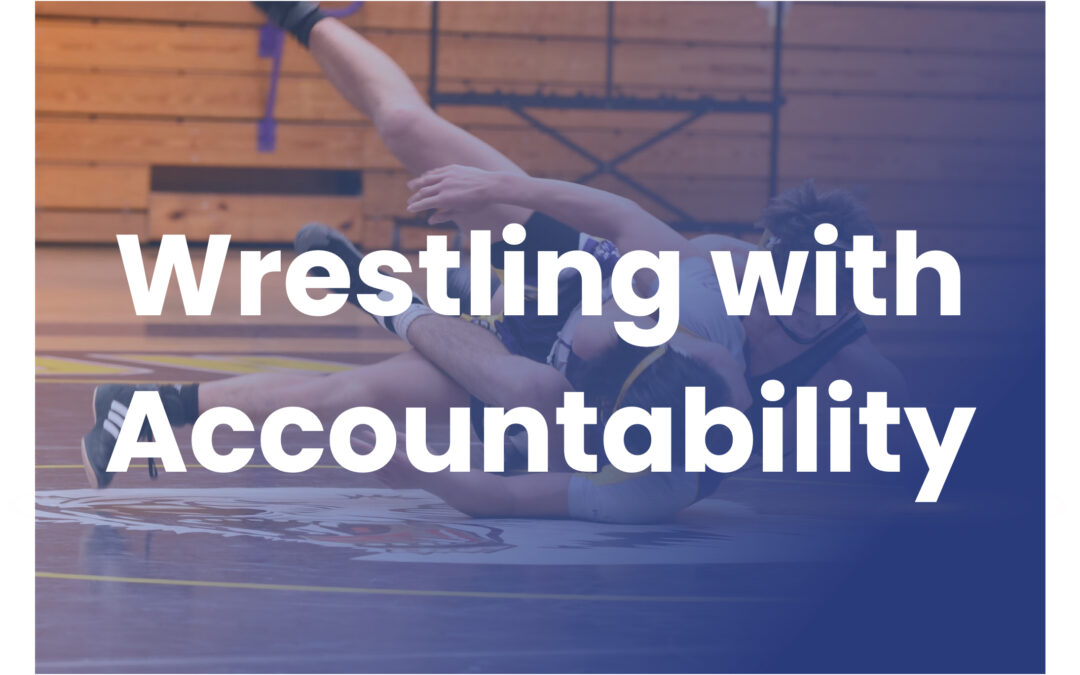In the fourteen-year history of JMReid group, one of the areas we’ve seen organizations wrestle with most is creating personal accountability.
In the workplace, there exists a mythology that high accountability is what everyone wants: Leaders bemoan the “lack of accountability” – citing inflated performance reviews and/or missed deadlines and targets. In surveys, workers have said that they want to work in an environment where people are held accountable.
But this mythology is all hooey. It is hooey partly because there is a tendency toward fuzziness around what accountability and being accountable means. This isn’t just among the leadership or the workers, but even from some of the folks who are out there claiming to help.
For example, Korn Ferry’s video says that “accountability is not just getting things done, but also how you are getting things done.” That covers the waterfront and more — not helpful.
Covey goes the more-pithy route, saying “accountability is response-ability.” (See what he did there?)
BYU posts that “accountability is a personal choice to rise above one’s circumstances and demonstrate the ownership necessary for achieving desired results.” Wow, a lot going on there.
Still others talk about the ladder of accountability or bring up Dorothy and Toto, yet the issue remains.
Why, for a relatively simple concept (in brief, you’ve either delivered on your commitment or you have not) does this continue to haunt us?
In my experience, the biggest reasons are a lack of clarity on the meaning of the word accountability; the individual learner’s self-perception; and the well-intended (but misguided) over-emphasis on empathy, which has now merged with the focus on psychological safety that many managers are taught.
Let’s look at self-perception: When you ask a room full of adults “Raise your hand if you are not accountable?” not one hand will go up. If you then ask “Who here knows someone who they cannot count on?” All hands will go up.
So this tells us that we see ourselves as accountable and that we typically feel the accountability issue lies with someone else. When pushed a little, some learners will admit to needing to think more strategically and others will mention their need to embrace executive presence but few, if any, will say “Yes. Please teach me how to be accountable.”
So how to change self-perception and as a bonus, give a definition that we can all agree upon? To start, any learning that does not quickly challenge the underlying mindset will fail.
Behavioral self-assessments are wildly unreliable and with a topic as sensitive as personal accountability, 360 assessments are ineffective at challenging the way the learner views themselves (i.e. that they are accountable!)
The best way is clear – not through lecture, not through table discussions, but through an activity in which the learner evaluates themself or others against an agreed-upon commitment. We have discovered that most learners confuse accountability with factors like trying hard or being well intended. When we ask people why they did not meet their commitments, they often yield a fairly robust list of reasons. When we ask these same individuals to create a title for this list, the lightbulbs go off and they recognize these ‘reasons’ are excuses.
In fact, many organizations operate in an excuse culture — if you have a good excuse and can make it compellingly, you may live to fight another day.
Managers will often embrace these excuses themselves, which enables them to avoid a difficult conversation. If they have received poorly taught direction on empathy or psychological safety, they have cover for their thinking.
Now, if you think that psychological safety is all good, consider a debate I had with a learning professional who argued that we should not teach the idea that “candor is a compliment.” Their argument? The concern that some people may not feel safe when hearing or in delivering honest feedback.
There is a place for empathy, psychological safety, servant leadership and others. The tension is squaring them in a high accountability work environment.
So back to defining accountability. I find the root of the word fascinating, it stems from the late Latin accomptare (to account), a prefixed form of computare (to calculate), which in turn derived from putare (to reckon).
This viewpoint of math and accounting fits nicely with the idea that a task has either been accomplished or it has not, however, it is somewhat limiting. What we propose is the following:
“TAKING PERSONAL OWNERSHIP TO ENSURE THAT COMMITMENTS ARE ACHIEVED AS AGREED.”
With this definition, we can cut through the mythology, evaluate accountability and move forward.
